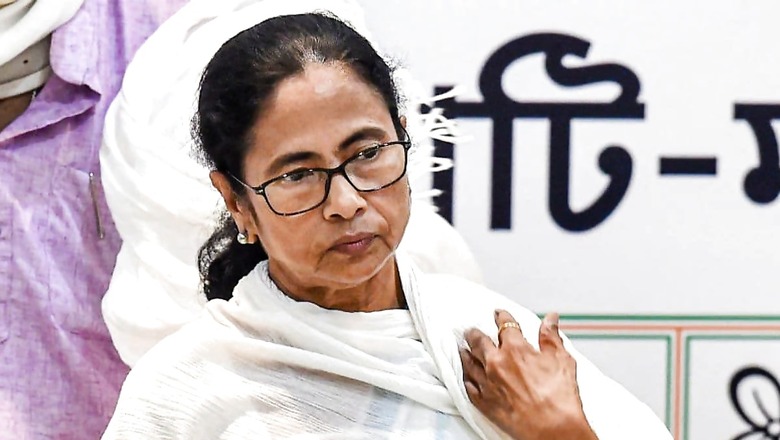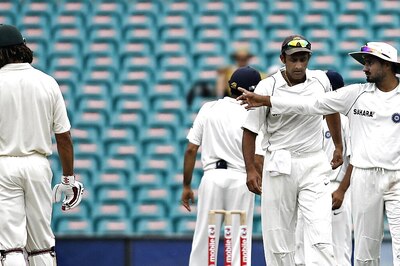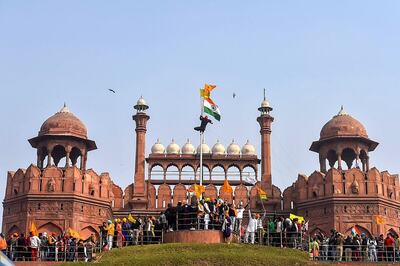
views
The easy arrest of the dreaded Trinamool Congress (TMC) henchman from Sandeshkhali, Sheikh Shahjahan, on February 29 raises more questions than it answers. Coupled with the incident of January 5 when his goons attacked and injured officials of the Enforcement Directorate (ED) while he escaped — and recalling the 2019 incident when West Bengal Police held CBI officers hostage in Kolkata while Chief Minister Mamata Banerjee staged a dharna — the party ruling in the state would evidently not allow its antisocial elements to be in the custody of any central agency, lest its ‘trade secrets’ should unravel.
Of course, the arrest by the West Bengal Police, made under the pressure of agitating women victims from the village and relentless activism by the Bengal BJP, is an eyewash. Earlier, ADG of South Bengal Supratim Sarkar had lied that the Calcutta High Court had stayed Shahjahan’s arrest while the fact was that the court had only stayed the proposed transfer of the case to the CBI.
The Sections of the IPC under which the police are proceeding against Shahjahan are 147, 148, 149, 323, 353, 427, 506 and 34. None except Section 353 of IPC applies to a non-bailable offence. When the lawyers of the accused challenge his arrest in court, he can wriggle out. Even the bailable sections entail punishments that are disproportionately lesser than the severity of his alleged crime of getting women of Sandeshkhali abducted and mass-raped. That is, even when one discounts Shahjahan’s crime of cleansing Hindus from this pocket of the Sundarbans, the mangrove-filled, riverine-soiled delta divided between India and Bangladesh.
Media across the country, while sensitised to affairs of West Bengal since the heady days of Singur and Nandigram agitations in 2007-08, is still not telling the truth that Shahjahan is an infiltrator and the real name of his associate Uttam Sardar is Noor Alam.
Sandeshkhali is but only one example out of many. Women across the rural landscape of the state have been subjected to inhuman torture, bearing the brunt of the TMC’s ire, as hooligans of the ruling party — led by Muslims like Shahjahan — had to ‘settle scores’ with BJP supporters and their own party’s turncoats after the 2021 assembly election. Men were butchered and their women raped, and all these incidents were passed off as cases of personal enmity with no communal or partisan angle. In the preceding panchayat election, nominees of rival parties were in some cases killed in front of the sub-divisional magistrate offices before they could file their papers. During both instances, while the Supreme Court — otherwise prone to taking suo motu cognisance of media-reported crimes that betray a pattern — looked the other way, the Calcutta High Court squeaked in the name of protecting India’s democracy in West Bengal.
Yet, even those violations of human rights in arguably the darkest state in the country were not the oldest. The last term of the TMC was marred by equally dreadful political violence, where every other month, corpses of activists who proved inconvenient to the ruling party were found hanging from trees in Bengal’s villages. It did not concern the politically correct narrative-makers that these victims were mostly members of the Scheduled Castes and Scheduled Tribes, the same ‘underprivileged’ sections for whom they had shed copious tears when the apex court had proposed safeguards to avoid any abuse of the SC/ST (Prevention of Atrocities) Act in 2018.
When an opponent of the BJP kills, it is kosher, as also seen in the incident where a Dalit was lynched in broad daylight by holier-than-thou Nihang ‘farmers’ in 2021. In the same period, communal riots rocked West Bengal every alternate year. If a map of riot-hit small towns of the state were to be made, it would appear as though, under instructions of some mastermind higher up, their handlers were encircling Kolkata, the capital of the state, and tightening the noose every passing year.
As the portents did not put the Indian state on alert, riots that were once happening in suburbs like Bashirhat, Canning, Baduria, Krishnanagar, Howrah, Dhulagarh, Hooghly and Barrackpore began happening in Diamond Harbour, Metiabruz, Garden Reach, Rafi Ahmed Kidwai Road and Park Circus of Kolkata. As many as 65 cases of communal conflagration were reported in 2021-23, including violence of the type witnessed in Delhi and Rajasthan: attacks on Ram Navami and Hanuman Jayanti processions.
Surely, West Bengal has been the most politically violent state since the late 1960s when Naxals emerged. But the 34-year-long tenure of communist rule had Jyoti Basu at the helm for a longer stretch. He mastered the craft of putting hoodlums on a leash, releasing them only once in a while when the CPM rule was at stake. His successor, Buddhadeb Bhattacharjee, while cultivating an image of a perfect bhadralok as astutely as communists do, could not rein in his comrades who had been brought up for decades on the idea that industry was capitalism and capitalism was sin, which led to his ouster from power.
During those 34 years, when West Bengal Congress came tantalisingly close to snatching power back from the Left Front, lagging the ruling coalition by a mere 2-5 per cent of the vote share in a few elections, the anti-communist section of the electorate would wonder whether Banerjee could be given a chance. Given her crass lingo and propensity for over-the-top theatrics, the Bengali snob was reluctant to count on her. But the era of polished Bengalis with a refined taste is behind us.
As the aristocracy of Calcuttans stopped determining the acceptability of a politician, Singur happened, which catapulted the only face of opposition to CPM to more popularity. With the BJP appearing nowhere on the horizon and the locals sure that Indira Gandhi, Rajiv Gandhi, PV Narasimha Rao and Sonia Gandhi had only been apathetic to their concerns even when Congress workers were murdered in the streets, the woman who had broken free of the New Delhi-based high command in 1998 was given the opportunity to run Bengal her way 13 years later.
And then the apprehension proved true. Basu’s thugs, who had switched camps when Bhattacharjee’s fall was imminent, were now unbound. It is, however, easier to see an end to the raj of the woman who officiates over the torture of other women and shamelessly brands incidents as “sajano ghatona” (choreographed or stage-managed) — from Park Street to Sandeshkhali. She does not have spokespersons with the gift of the gab, unlike her communist predecessors who would celebrate mayhem as “people’s revolution” so persuasively that the credulous audience would lap it up.
Rather, in Trinamool’s case, now and then for economic offences, either agencies arrest their ministers and MLAs or some insider comes out to allege that his colleagues in the party made a fortune while he was ‘deprived’. Ever heard of a Bengali communist neta caught with crores of cash in the closet? Unable to match their degree of sophistication, Banerjee’s party is bound to disintegrate. It’s a matter of nothing but time.
And that’s precisely what the BJP is counting on. It hopes or seems to believe that the infamy that the Trinamool Congress has been increasingly earning for the past several years would be enough to see the ruling party’s downfall. Besides, those who have followed the ‘saffron party’ since the Bharatiya Jana Sangh days know that it would never slap Article 356 on any state as a matter of principle against what Indira Gandhi would do at the drop of a hat during her heydays. In Kerala too, where RSS swayamsevaks are killed wantonly, the BJP does not respond to violence with violence. In Andhra Pradesh, it keeps crying over Hindu temples being taken over or misappropriated by Christians. The party that punishes T Raja Singh (before pardoning him) in Telangana cannot be expected to impose President’s Rule on West Bengal.
‘Grin and bear it until your turn arrives when people have run out of options’ is how it enters a state. Banerjee will be gone the day her own people rise against her, not because the rival pushed her out.
The author is a senior journalist and writer. Views expressed in the above piece are personal and solely that of the author. They do not necessarily reflect News18’s views.




















Comments
0 comment